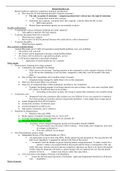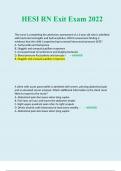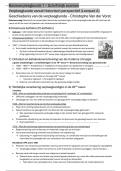Study guide
Mental Health Law
18 pages worth of notes containing lecture notes, summary of academic literature and relevant case law and legislation. EXCEPTION to the principle of autonomy. Relevant legislation: Mental Health Act. Considers the policy trends, impacts and solutions to problems associated with mental health law.
[Show more]











